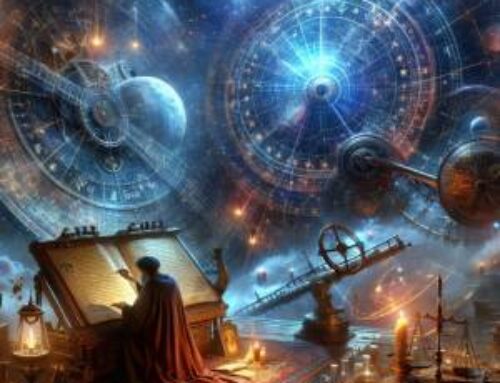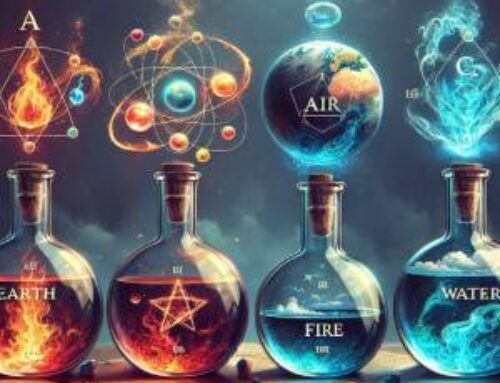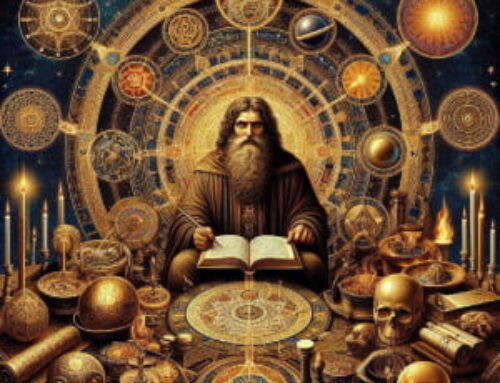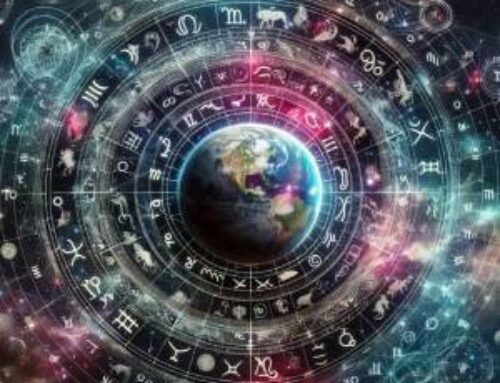Contents
- 1 Introduction
- 2 Occultism and Its Core Principles
- 3 The Intersection of Occultism and Mysticism
- 4 Alchemy as a Path of Occultism
- 5 Eminent Personages in Occultism
- 6 Occultism in the Modern World
- 7 Digital Epoch and Openness
- 8 Revival of Esoteric Traditions
- 9 The Future of Occultism
- 10 Conclusion
- 11 FAQ: Exploring the Mysteries of Occultism
- 12 Reference:
Introduction
Beneath the visible layers of reality, occultism weaves a narrative that stretches the fabric of understanding, offering insights into the enigmatic forces at play in the cosmos and within ourselves. This ancient yet ever-evolving discipline beckons the curious and the bold to embark on a journey beyond the confines of conventional wisdom, into a realm where the mystical, the magical, and the profound merge.
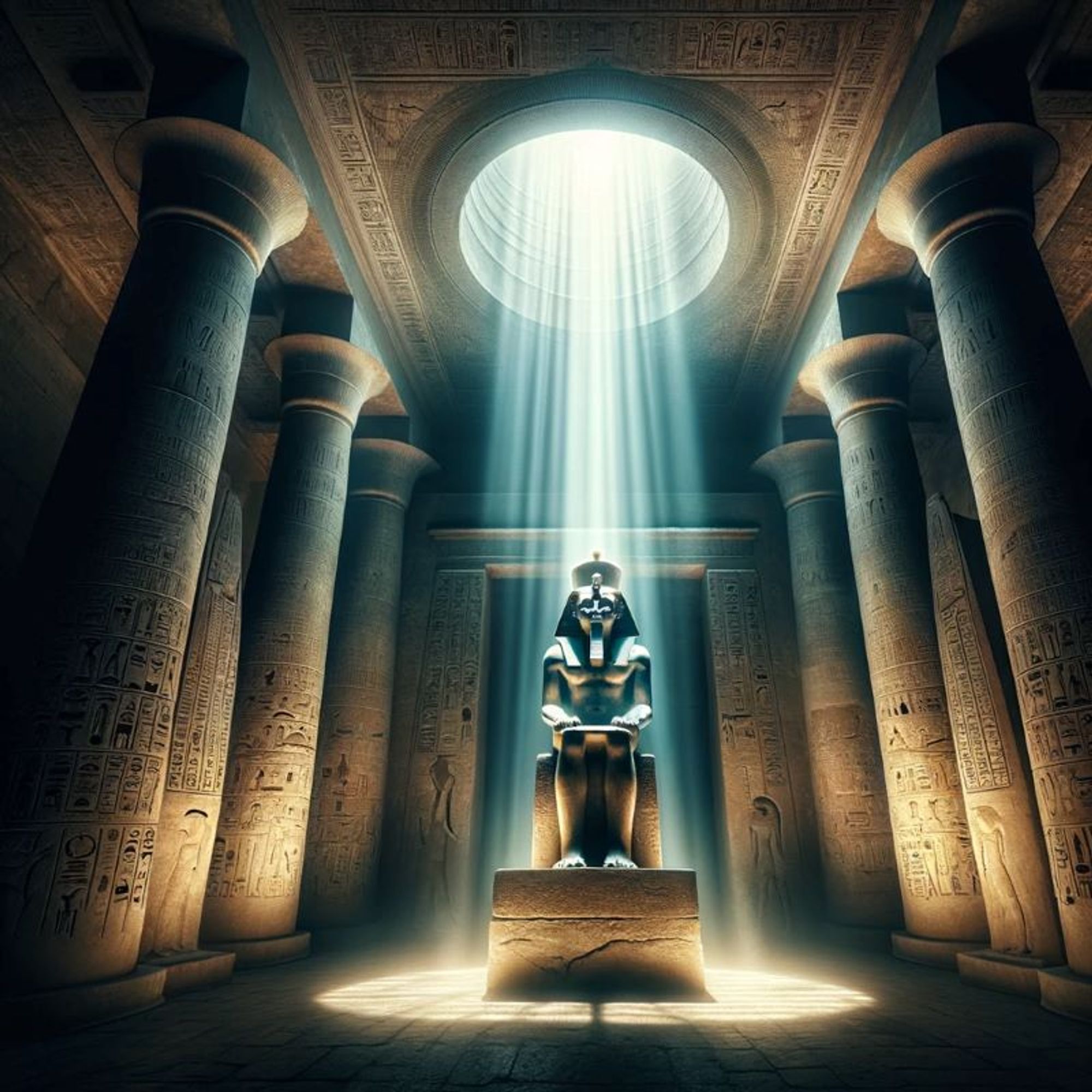
Occultism is not merely a collection of arcane rituals and esoteric knowledge; it is a deeply spiritual quest for enlightenment, a path paved with the mysteries of the universe waiting to be unraveled. It encompasses a rich mosaic of practices and philosophies, from the transformative alchemy of the soul to the intricate dance of celestial energies captured in astrology, and the profound depths of mysticism.
As we peel away the veils of the mundane, a world of hidden wisdom unfolds, revealing truths about our existence and the interconnectedness of all things. This exploration into occultism invites you on a compelling voyage to discover the latent powers within and the universal secrets that govern our journey through life. Through the lens of occult knowledge, we gain the tools to navigate our spiritual path, challenge our perceptions, and awaken to a more profound, interconnected reality. Join us as we delve into the heart of occultism, uncovering the timeless wisdom that has guided seekers through the ages and remains as relevant today as ever in our quest for understanding and transformation.
Occultism and Its Core Principles
Occultism, a term that stirs intrigue and mystery, serves as a gateway to the unexplored corridors of spiritual knowledge and power. At its heart, occultism is not about darkness or the forbidden; it is about seeking the light that lies hidden in the shadows of our understanding. This journey into the occult is guided by core principles that have been passed down through the ages, principles that offer insight into the workings of the universe and our place within it.
The Principle of Correspondence “As above, so below; as below, so above”. This sacred axiom suggests that the vast macrocosm of the cosmos mirrors the intimate microcosm of our personal being. In the understanding of the one, we can reveal the wisdom of the other. This maxim guides the occult practitioner through the labyrinthine paths that connect all entities, from the celestial orbs that adorn the heavens to the most hidden chambers of the human mind.
The Principle of Vibration teaches that everything in the universe is in constant motion, vibrating at different frequencies. This vibration is the essence of creation and existence, and influences our thoughts, feelings and mental states. By mastering this principle, one can learn to harmonise with the vibrations of the universe, leading to profound spiritual experiences and insights.
The Principle of Polarity reveals that everything is dual; everything has poles, and everything has its opposite. Light and dark, love and fear, positive and negative—all are two sides of the same coin. This principle helps the occultist navigate the polarities of life, finding balance and wisdom in the union of opposites.
The Principle of Rhythm underscores the cyclical nature of the universe. Everything flows, out and in; everything has its tides. This rhythm is evident in the changing seasons, the cycles of life and death, and the ebb and flow of our personal experiences. By recognizing and working with this rhythm, one can achieve harmony with the natural flow of life.
The Principle of Cause and Effect teaches that nothing happens by chance; every action has a reaction or consequence. This principle empowers the occultist to take responsibility for their actions and their spiritual journey, understanding that each choice shapes their path.
The Principle of Gender states that gender is in everything; everything has its masculine and feminine principles. This principle is not merely about biological sex but about the balancing and harmonizing of the active and receptive aspects of our nature.
The Intersection of Occultism and Mysticism
The dance between occultism and mysticism is an intricate one, where the boundaries blur, and the seeker finds themselves traversing paths that lead to the same ultimate destination: union with the divine. While occultism provides the map, mysticism is the journey—a personal, intimate exploration of the divine mystery that pervades existence.
Mysticism: The Soul’s Quest for the Divine
Mysticism is, at its core, an experiential quest for direct union with the supreme truth or divine essence. It transcends dogma, ceremony and creed, focusing instead on the inner yearning of the heart to reveal the quintessence of existence. Mystics of various paths have often sought arcane wisdom as a conduit to enrich their understanding of the spiritual edicts and axioms that orchestrate the universe and the spirit’s journey within it. Synergy of Knowledge and Experience
The intersection of occultism and mysticism is marked by a synergy between knowledge and experience. Where occultism offers insights into the hidden mechanisms of the universe—its symbols, energies, and vibrations—mysticism provides the experiential methods through meditation, contemplation, and inner transformation, to directly engage with these truths. This harmonious blend empowers the seeker to navigate the spiritual realms with wisdom and insight, fostering a profound inner awakening.
The Path of Initiation
Initiation rites in the Graeco-Roman world, particularly those for mystery religions, were influenced by cognitive theories of ritual competence and ritual form (1).
Both paths often share the concept of initiation—a process of inner transformation that awakens the seeker to higher states of consciousness. In occultism, initiation might involve ceremonial rites, the study of esoteric texts, and the practice of rituals designed to align the individual with deeper spiritual realities. In mysticism, initiation is the heart’s journey through the dark night of the soul, leading to the illuminating experience of divine union. Together, these processes of initiation serve as gateways to transcendent knowledge and spiritual liberation.
Universal Truths and Personal Revelations
The confluence of occultism and mysticism reveals that behind the diversity of spiritual expressions lies a unity of underlying truths. The mystic’s direct experience of the divine complements the occultist’s understanding of the cosmic laws, leading to a holistic spirituality that embraces both the universal and the personal. This journey uncovers not just the mysteries of the universe but the profound revelation of our true selves—divine beings engaged in a human experience, called to remember and manifest our inherent unity with all that is.
Alchemy as a Path of Occultism
Alchemy, traditionally viewed through the lens of transforming base metals into gold, holds a much deeper significance within the realm of occultism (2). It represents the spiritual journey of purification and transformation—a quest not for material wealth but for the alchemical gold of enlightenment and self-realization.
The Metaphorical Lead into Gold
At the heart of alchemical practice is the belief in the potential for human transformation. Just as lead can be turned into gold through a series of processes, the human soul, considered to be in its base state due to ignorance and separation from the divine, can achieve purity and enlightenment. This journey involves the alchemical processes of dissolution, purification, and reunification, metaphorically applied to the seeker’s spiritual growth.
The Three Stages of Alchemical Transformation
These stages are also found in the initiation path of Martinism:
- Nigredo (Blackening): The initial phase involves confronting the shadow self and the unconscious aspects of the psyche. It’s a period of introspection and acknowledgment of one’s limitations and imperfections, akin to the decomposition of base materials in preparation for purification.
- Albedo (Whitening): This stage signifies purification and cleansing. Just as alchemists sought to purify their materials, the seeker works on purifying their thoughts, emotions, and intentions, aiming for a state of inner harmony and balance.
- Rubedo (Reddening): The final stage represents the achievement of the Magnum Opus or the Great Work—the alchemical marriage of the masculine and feminine principles within, leading to the birth of the ‘Philosopher’s Stone,’ symbolic of enlightenment, unity, and the realization of one’s true divine nature.
Alchemy and Its Symbols in Occultism
Occultism embraces the rich symbolism of alchemy, viewing it as a language that communicates universal truths. The symbols used in alchemical texts—such as the ouroboros (the snake eating its own tail), the phoenix rising from ashes, and the hermaphrodite (union of opposites)—serve as allegorical tools for spiritual insight. They guide the seeker through the intricate landscape of transformation, offering keys to unlocking the mysteries of the self and the universe.
The Relevance of Alchemy Today
In the modern context, alchemy’s principles continue to resonate within the occult tradition, offering a path for personal and collective evolution. It encourages a holistic view of transformation that includes not only the spiritual but also the mental, emotional, and physical aspects of our being. By integrating alchemical wisdom, practitioners of occultism embark on a transformative journey that seeks to transmute the lead of human experience into the gold of spiritual awakening.
Eminent Personages in Occultism
The intricate weave of occultism is adorned with the monikers of those who have plunged into its enigmas, each bestowing their distinctive strand upon the wider comprehension of the arcane. These souls, via their manuscripts, discourses, and rites, have etched a lasting legacy upon the occult lore, shepherding aspirants across the epochs.
Aleister Crowley: The Magician and Mystic
Aleister Crowley, prolific author, mystic and magus, inaugurated the spiritual doctrine of Thelema. His dictum, “Do what you will, the whole of the law shall be”, embodies his belief in the paramount importance of personal will and the pursuit of unique mystical truth. He was an adept of the Hermetic Order of the Golden Dawn. Crowley’s voluminous treatises on magic, the occult and esoteric ritual have profoundly influenced the esoteric community, making him one of the most illustrious figures in contemporary occultism.
Eliphas Lévi: The Occult Revivalist
Eliphas Lévi, born Alphonse Louis Constant, was a French occultist and writer who played a key role in the 19th-century occult revival in Europe. His work “Transcendental Magic, its Doctrine and Ritual” brought the tarot and the concept of correspondences (the relationship between various elements of the esoteric tradition) to the forefront of occult practice. Lévi’s influence extended to the symbolism and rituals of modern Western esoteric traditions, including ceremonial magic an hermetic orders.
Manly P. Hall: The Philosopher and Scholar
Manly Palmer Hall, originating from Canada, was an author, mystic, and orator, famed for his comprehensive manuscript “The Secret Teachings of All Ages.” Via his scribblings and discourses, Hall endeavored to render the sagacity of archaic and hidden philosophies attainable to the contemporary aspirant. His delve into subjects like alchemy, tarot, and the enigmas of ancient societies has furnished an essential treasury for those enthralled with the profound facets of occultism and spiritualism.
Gerard Encausse (Papus): The French Occultist
Gerard Encausse, more widely recognized by his esoteric name Papus, was a medic and a pivotal figure in the French occult resurgence of the late 19th and early 20th centuries. As the guardian of the Martinist Order, Papus endeavored to rekindle interest in Hermeticism, Christian mysticism, and the Kabbalah. His compositions, including “The Tarot of the Bohemians” and “The Qabalah,” stand as foundational works in the study of Western esotericism. Papus’s instruction underscored the significance of arcane wisdom for spiritual evolution and the restoration of both the corporeal and the spiritual..
Samuel Liddell MacGregor Mathers: The Scholar and Magician
Samuel Liddell MacGregor Mathers stood at the heart of the late 19th-century resurgence in occultism and was among the luminaries who inaugurated the Hermetic Order of the Golden Dawn, a conclave dedicated to the examination and enactment of the Western mystery tradition. As a savant of the occult, Mathers rendered into English and explicated numerous mystical manuscripts, among them “The Book of the Sacred Magic of Abramelin the Mage.” His stewardship and prophetic contributions within the Hermetic Order of the Golden Dawn were instrumental in the evolution of contemporary ceremonial magick, casting a long shadow over successive circles of adepts.
Occultism in the Modern World
The enchantment with occultism remains undimmed as the annals of time unfurl; rather, it discovers novel manifestations and echoes in the modern era. With the evolution of society marches the adaptation of occult practices, reshaping to meet the aspirations and cognitions of a fresh cadre of questers. This transformation is manifest in the burgeoning of digital platforms, a renewed fervor for esoteric traditions, and the harmonizing of age-old sagacity with contemporary scientia.
Digital Epoch and Openness
The digital upheaval has revolutionized the mode of procurement and engagement with occult lore. Web-based forums, social media collectives, and digital repositories have rendered arcane scriptures and doctrines more reachable than ever. Such democratization of lore paves the way for an expanded, variegated assembly of adepts and scholars, nurturing worldwide dialogues and exchanges on occult methodologies and wisdom.
Revival of Esoteric Traditions
A marked revival in enthusiasm for various esoteric traditions, including astrology, tarot, and Hermetic Qabalah, is observed among millennials and Generation Z. This resurgence is frequently ascribed to a quest for significance and spiritual identity amidst an ever more material and estranged cosmos. The venerable rites of occultism proffer a deep, emblematic lexicon and an arsenal for personal quest, self-comprehension, and metamorphosis.
The Tangible Application of Occult Knowledge
In today’s fast-paced and sometimes turbulent world, the tangible facets of occultism have become increasingly important. Meditation, ritual magic and the manipulation of energy are used not only in the pursuit of spiritual enlightenment, but also as tools to enhance mental well-being, personal strength and emotional balance. This practical approach to occult methodologies reflects a wider trend towards holistic well-being and the weaving of spiritual exercises into the fabric of everyday existence.
Obstacles and misconceptions
Despite its growing appeal, the modern iteration of occultism faces obstacles, including misconceptions and exaggerated portrayals. The sensationalisation of the occult in the media and in the cultural zeitgeist often obscures its authentic nature, catalysing misinterpretation and prejudice. However, as adepts and scholars continue to share and disseminate their insights, the profundity and heterogeneity of the occult is increasingly recognised and appreciated.
The Future of Occultism
As we stand at the crossroads of time, the future of occultism appears as a kaleidoscope of possibilities, each turn revealing new patterns of thought, practice, and community. The journey of occultism into the future is not a departure from its roots but an expansion, as it continues to weave its ancient wisdom with the threads of contemporary understanding and emerging technologies. The path forward is marked by several key trends that promise to shape the evolution of occult practices and beliefs.
Technological Integration and Virtual Realities
The integration of technology in occult practices is poised to deepen, with virtual and augmented realities offering new spaces for ritual, meditation, and exploration of esoteric symbols. These digital realms can create immersive experiences, allowing practitioners to engage with metaphysical concepts and spiritual entities in visually rich environments. As the boundary between the physical and digital worlds blurs, occultism could find a new frontier in the realm of virtual spirituality, expanding the possibilities for initiation, learning, and community.
Personal Transformation and Global Change
Occultism has always been a path of personal transformation, but as we move forward, its role in societal and global change becomes increasingly evident. The principles of occultism, with their emphasis on interconnectedness, personal responsibility, and the power of will, offer valuable insights for addressing the challenges of the modern world. Practitioners are likely to engage more actively in social and political realms, using their spiritual insights and practices to advocate for justice, peace, and wealth.
Spiritual exemplars can help guide individuals on their self-transformation journey, helping them embody their religion’s ideal and overcome philosophical and practical difficulties (3).
Conclusion
Our journey through the mystical landscapes of occultism reveals a tradition as constantly evolving as it is deeply enlightening. From its venerable origins to its contemporary expressions, occultism continues to offer seekers pathways to profound realisation and metamorphosis. It is a tradition that resonates with the essence of our existence, compelling us to look beyond the tangible and delve into the mysteries that reside within and around us.
Occultism, with its myriad practices and rich philosophical underpinnings, beckons us into a realm where the spiritual and the physical merge, where the quest for enlightenment catalyses personal and communal growth. As witnessed, the future of occultism is bright, ready to merge with new technologies, advocate ecological awareness and promote inclusivity, reflecting the evolving vision of our global society.
Positioned at this juncture, looking at the expanse of possibilities that occultism offers, we are reminded of the potency of both the individual and the collective in shaping our spiritual odyssey. The invitation to traverse the hidden corridors of spiritual wisdom is not only a summons to personal transformation, but to a reimagining of our world.
Encouraging progress on the spiritual path
For those drawn by the allure of these timeless yet increasingly relevant teachings, the Hermetic Academy offers a gateway to further exploration. Whether your interest lies in the alchemical mysteries, occult sciences, tarot symbolism or kabbalistic teachings, the Academy offers mentorship, resources and a community of fellow travellers. It represents a confluence where ancient wisdom meets future possibilities, where each individual’s path is revered as a segment of a broader fabric of spiritual inquiry.
Whether through initiation, contemplation, scholarship or communion with a community of adepts, the journey into occultism is an expedition into the core of the cosmos and oneself. Let us embrace the wisdom of the past, revolutionise our perception and contribute to the history of spiritual progress.
The way is open and the beacon of knowledge shines. Join us as we persevere in our search, acquisition and maturation, guided by the eternal maxims of occultism and the pioneering ethos of the Hermetic Academy.
FAQ: Exploring the Mysteries of Occultism
1. What is occultism?
Occultism refers to the study and practice of esoteric knowledge and mystical traditions. It explores hidden or secret aspects of the universe, seeking to understand the spiritual laws that govern reality and how they can be applied for personal and collective transformation.
2. How does occultism differ from mainstream religions?
While mainstream religions often focus on dogma, worship practices, and a community-oriented approach to spirituality, occultism emphasizes personal exploration, the acquisition of hidden knowledge, and the practical application of esoteric principles. It often incorporates elements from various spiritual traditions, blending them in a syncretic manner.
3. Can anyone practice occultism?
Yes, anyone genuinely interested in deeper spiritual exploration can practice occultism. However, discerning authentic teachings is challenging without guidance from established schools like the Hermetic Academy, as many sources contain inaccuracies or partial truths, complicating the practical application of knowledge.
4. What are some common practices in occultism?
Common practices include meditation, ritual magic, alchemy, symbolism, and the study of sacred texts. These practices aim to foster spiritual growth, enhance self-awareness, and create harmony with the universal laws.
5. Is occultism associated with dark or evil forces?
This needs to be corrected. Although occultism navigates the entire spectrum of spiritual beings and forces, including those considered ‘dark’, its quintessential pursuit is enlightenment and the seamless fusion of all facets of existence. Like any powerful instrument, the methods of this royal art can be used unwisely, but fundamentally it is a journey towards wisdom and self-discovery.
6. Where can I learn more about occultism?
For those interested in delving deeper into occultism, many resources are available, including books, online courses, and communities like the Hermetic Academy. Engaging with reputable sources and experienced practitioners is key to gaining a comprehensive and nuanced understanding of the subject.
Reference:
(1) Martin, L. (2018). Initiation. The Oxford Handbook of Early Christian Ritual. https://doi.org/10.1163/1877-5888_rpp_dum_10411.
(2) Rubenstein, E. (2023). Alchemy: Secrets of Consciousness Transformation. Hermetic World, Paphos.
(3) Harrison, V., & Gayle, R. (2020). Self-transformation and Spiritual Exemplars. European Journal for Philosophy of Religion. https://doi.org/10.24204/EJPR.V12I4.3520.

